Bits from Debian: DebianDay Celebrations and comments
 Debian Celebrates 30 years!
We celebrated our birthday this year and
we had a great time with new friends, new members welcomed to the community,
and the world.
We have collected a few comments, videos, and discussions from
around the Internet, and some images from some of the
DebianDay2023 events. We hope that
you enjoyed the day(s) as much as we did!
Debian Celebrates 30 years!
We celebrated our birthday this year and
we had a great time with new friends, new members welcomed to the community,
and the world.
We have collected a few comments, videos, and discussions from
around the Internet, and some images from some of the
DebianDay2023 events. We hope that
you enjoyed the day(s) as much as we did!
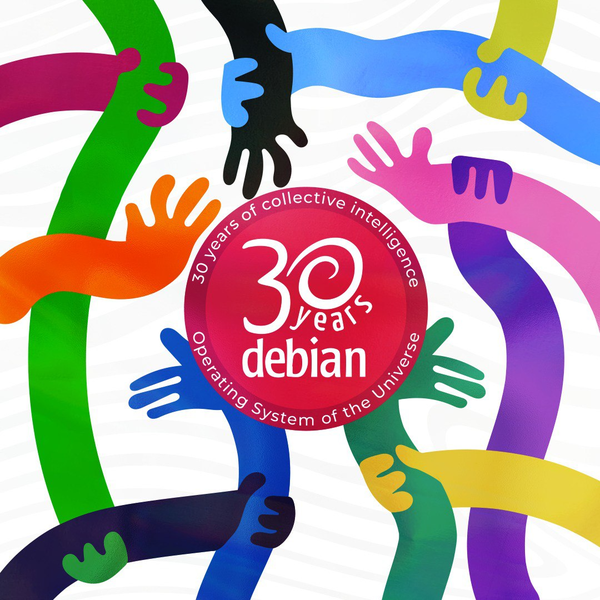
"Debian 30 years of collective intelligence" -Maqsuel Maqson
Brazil
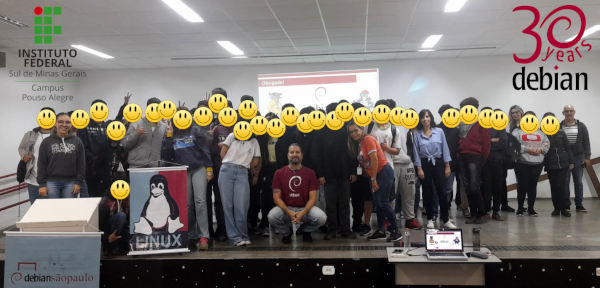
The cake is there. :)
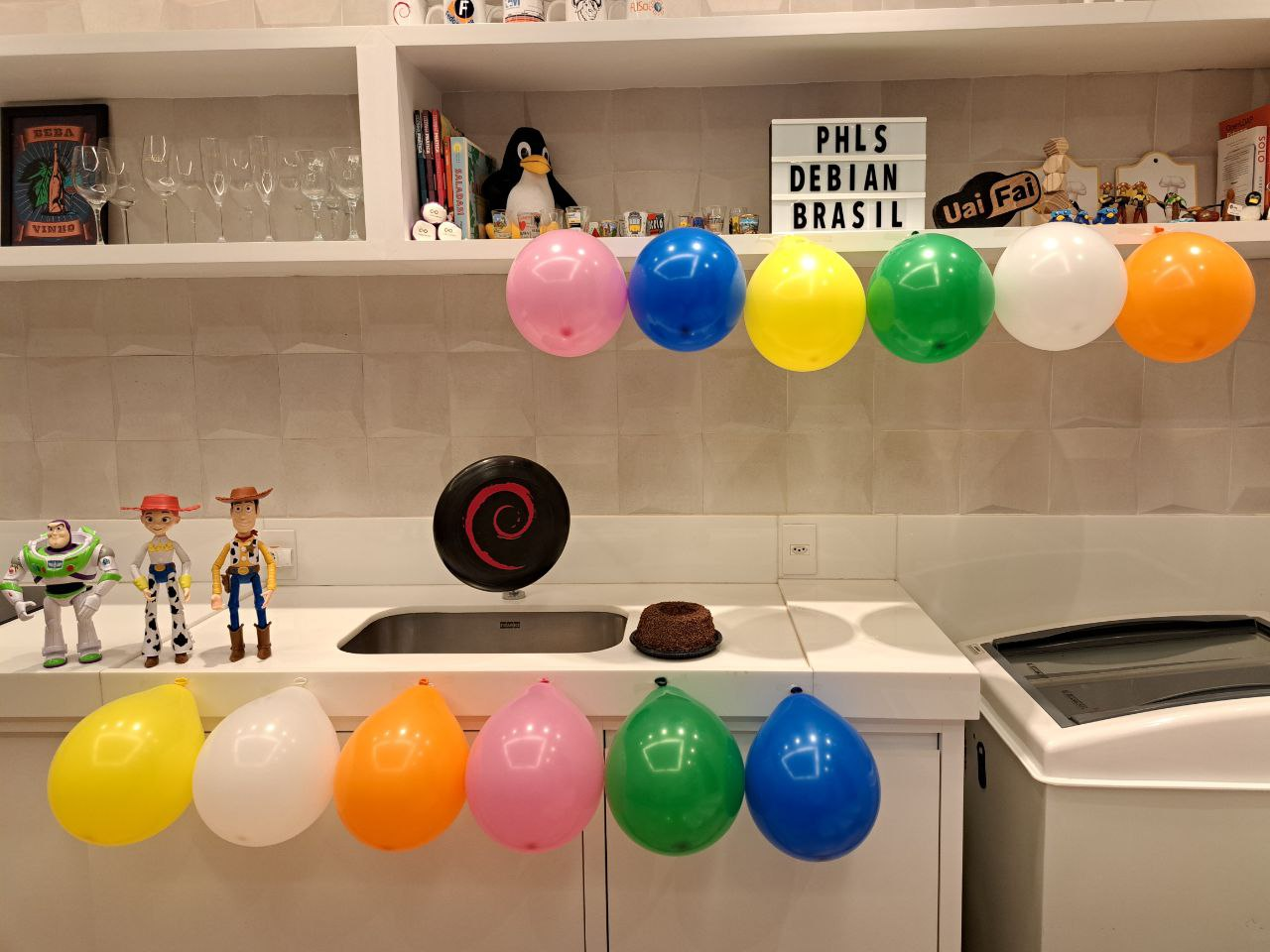 Honorary Debian Developers: Buzz, Jessie, and Woody welcome guests to this amazing party.
Honorary Debian Developers: Buzz, Jessie, and Woody welcome guests to this amazing party.
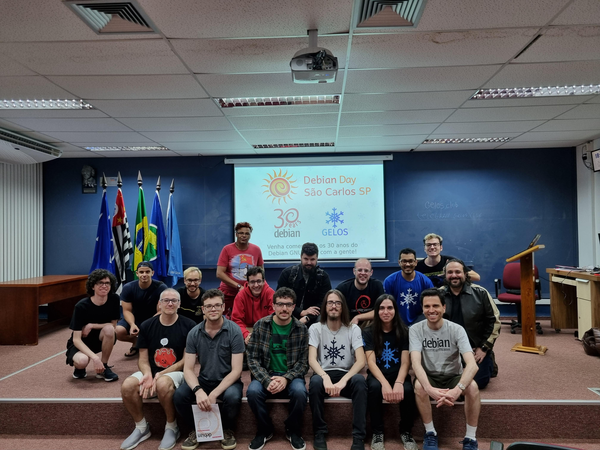 Sao Carlos, state of Sao Paulo, Brazil
Sao Carlos, state of Sao Paulo, Brazil
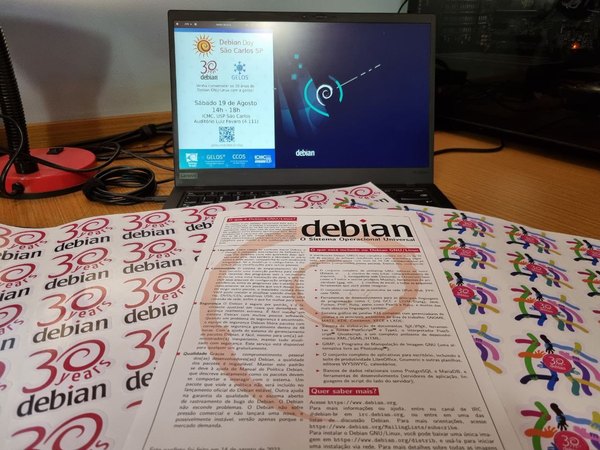 Stickers, and Fliers, and Laptops, oh my!
Stickers, and Fliers, and Laptops, oh my!
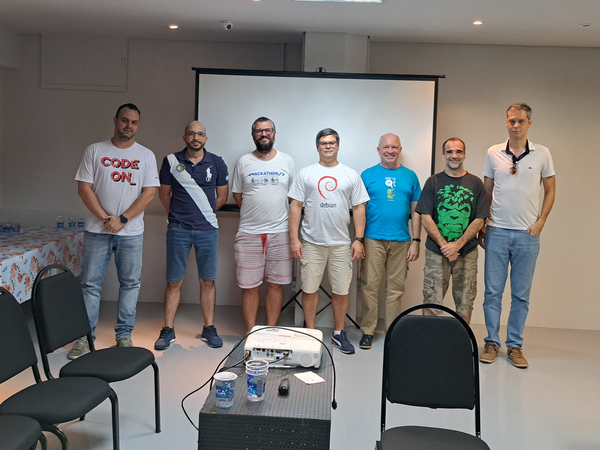 Belo Horizonte, Brazil
Belo Horizonte, Brazil
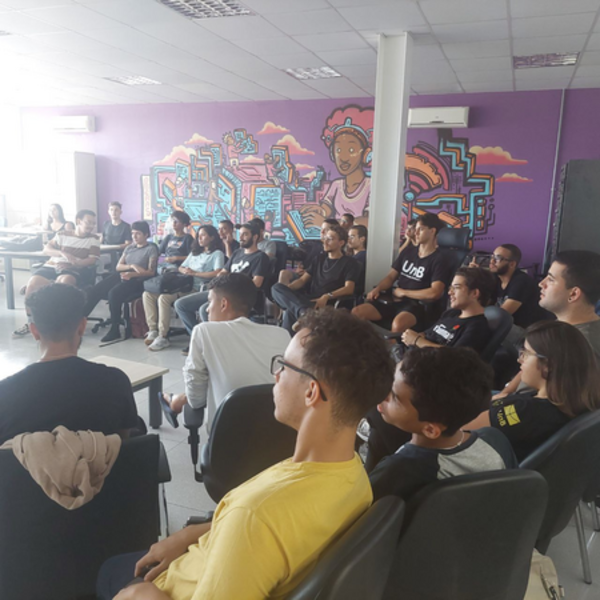 Bras lia, Brazil
Bras lia, Brazil
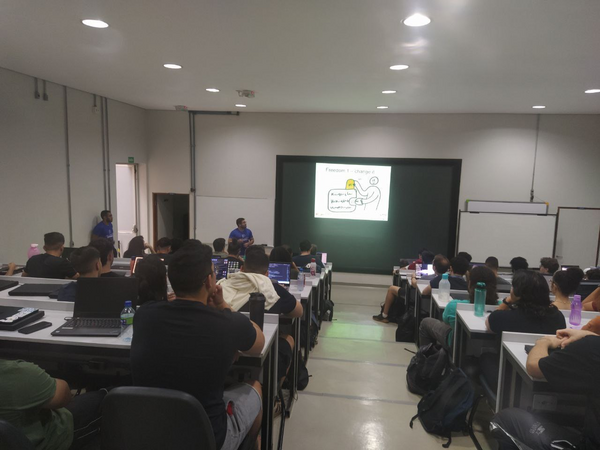 Bras lia, Brazil
Mexico
Bras lia, Brazil
Mexico
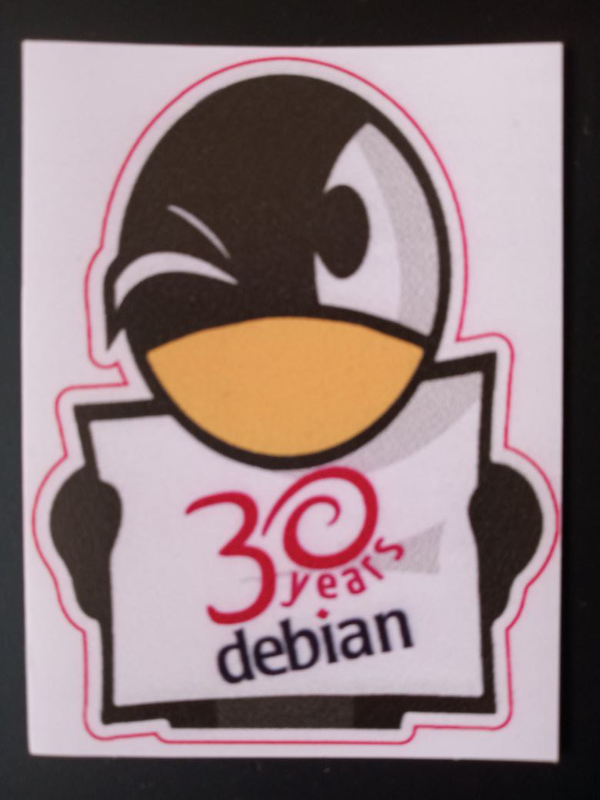 30 a os!
30 a os!
 A quick Selfie
A quick Selfie
 We do not encourage beverages on computing hardware, but this one is okay by us.
Germany
We do not encourage beverages on computing hardware, but this one is okay by us.
Germany
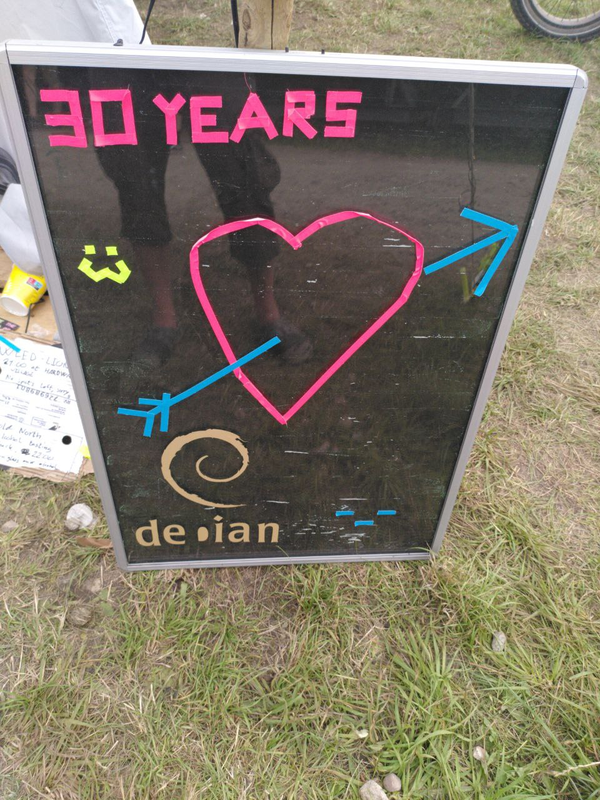
The German Delegation is also looking for this dog who footed the bill for the party, then left mysteriously.
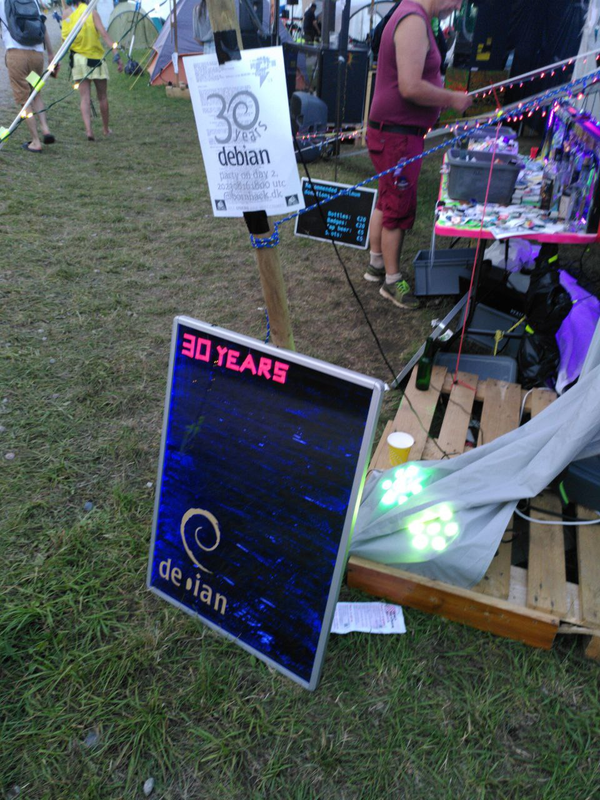
We brought the party back inside at CCCamp
Belgium
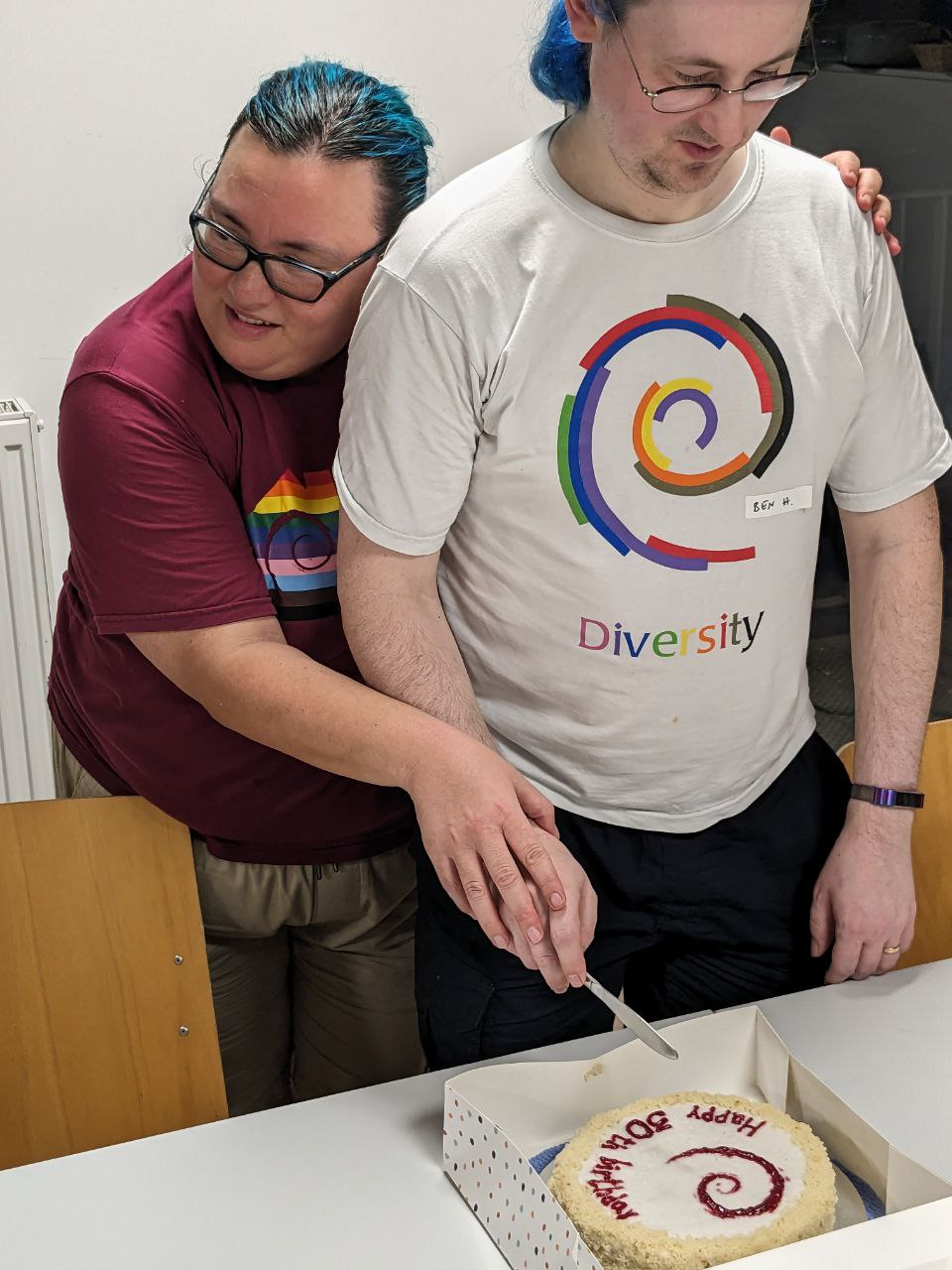
Cake and Diversity in Belgium
El Salvador
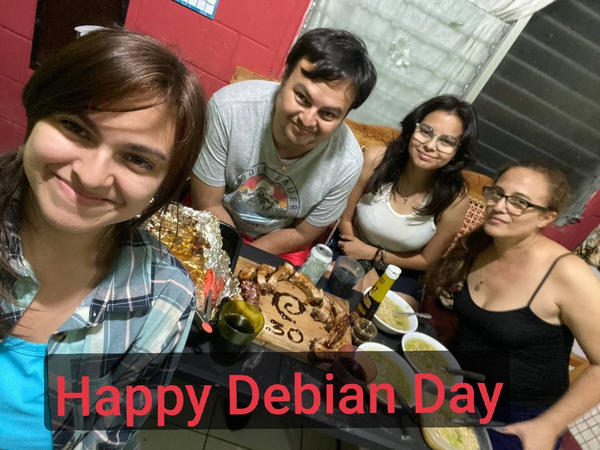
Food and Fellowship in El Salvador
South Africa
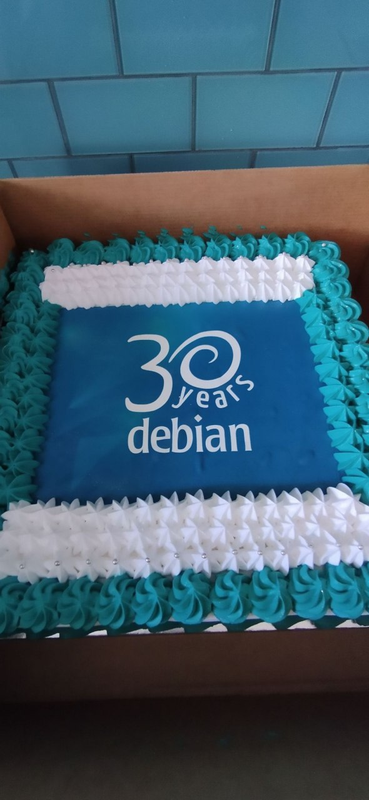
Debian is also very delicious!
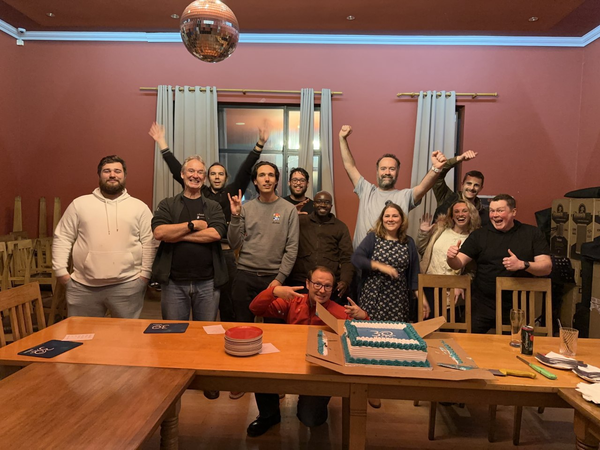
All smiles waiting to eat the cake Reports Debian Day 30 years in Macei - Brazil Debian Day 30 years in S o Carlos - Brazil Debian Day 30 years in Pouso Alegre - Brazil Debian Day 30 years in Belo Horizonte - Brazil Debian Day 30 years in Curitiba - Brazil Debian Day 30 years in Bras lia - Brazil Debian Day 30 years online in Brazil Articles & Blogs Happy Debian Day - going 30 years strong - Liam Dawe Debian Turns 30 Years Old, Happy Birthday! - Marius Nestor 30 Years of Stability, Security, and Freedom: Celebrating Debian s Birthday - Bobby Borisov Happy 30th Birthday, Debian! - Claudio Kuenzier Debian is 30 and Sgt Pepper Is at Least Ninetysomething - Christine Hall Debian turns 30! -Corbet Thirty years of Debian! - Lennart Hengstmengel Debian marks three decades as 'Universal Operating System' - Sam Varghese Debian Linux Celebrates 30 Years Milestone - Joshua James 30 years on, Debian is at the heart of the world's most successful Linux distros - Liam Proven Looking Back on 30 Years of Debian - Maya Posch Cheers to 30 Years of Debian: A Journey of Open Source Excellence - arindam Discussions and Social Media Debian Celebrates 30 Years - Source: News YCombinator Brand-new Linux release, which I'm calling the Debian ... Source: News YCombinator Comment: Congrats @debian !!! Happy Birthday! Thank you for becoming a cornerstone of the #opensource world. Here's to decades of collaboration, stability & #software #freedom -openSUSELinux via X (formerly Twitter) Comment: Today we #celebrate the 30th birthday of #Debian, one of the largest and most important cornerstones of the #opensourcecommunity. For this we would like to thank you very much and wish you the best for the next 30 years! Source: X (Formerly Twitter -TUXEDOComputers via X (formerly Twitter) Happy Debian Day! - Source: Reddit.com Video The History of Debian The Beginning - Source: Linux User Space Debian Celebrates 30 years -Source: Lobste.rs Video Debian At 30 and No More Distro Hopping! - LWDW388 - Source: LinuxGameCast Debian Celebrates 30 years! - Source: Debian User Forums Debian Celebrates 30 years! - Source: Linux.org
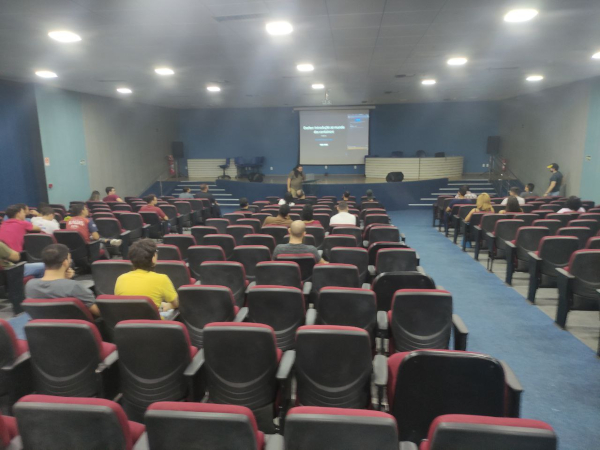
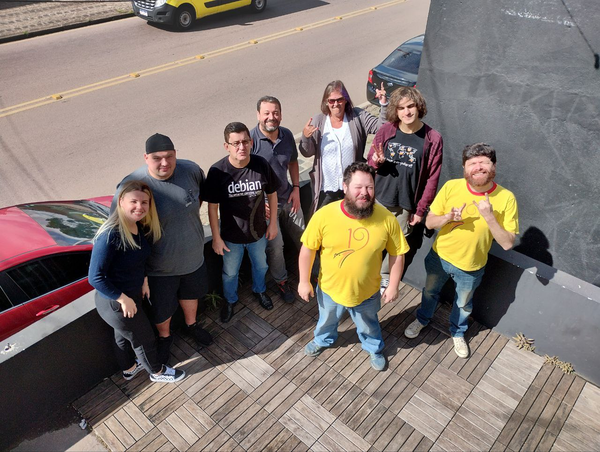

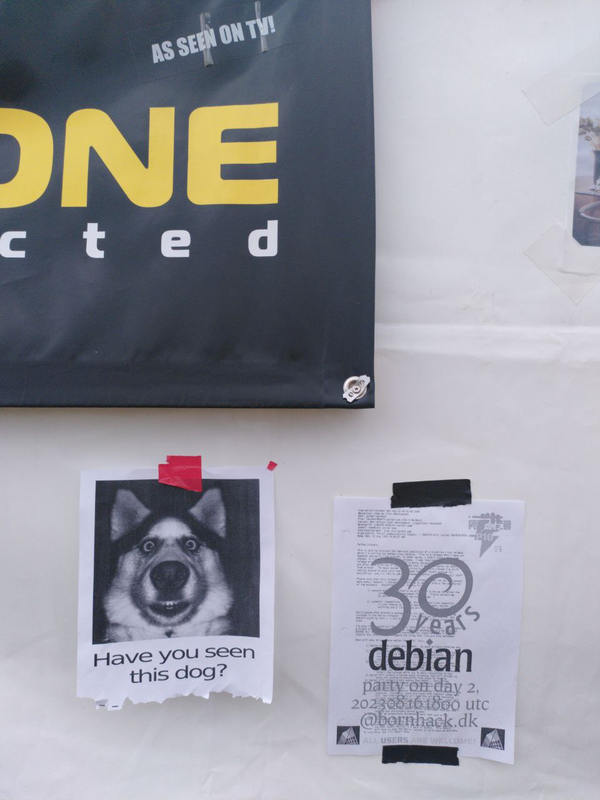

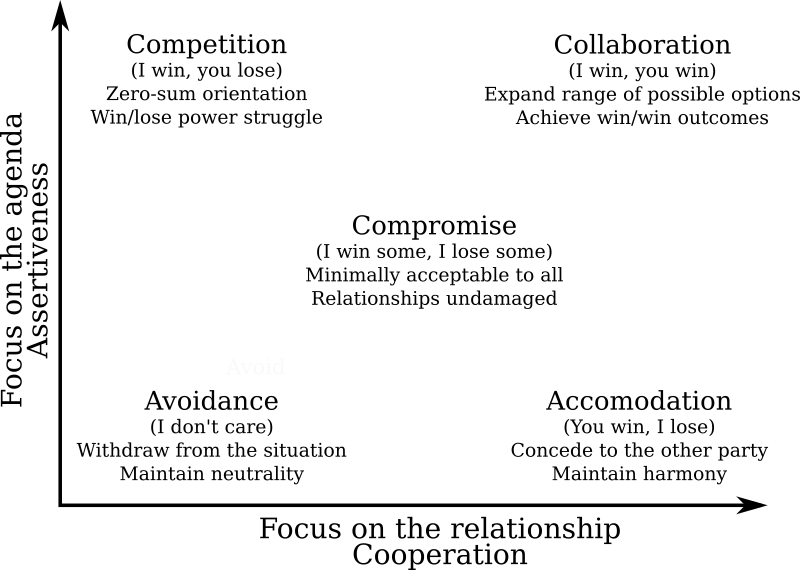 The
The 
 Unfortunately I was not able to attend debconf this year but thanks to the
awesome video team the all the talks
Unfortunately I was not able to attend debconf this year but thanks to the
awesome video team the all the talks  There is a strange bug in Planet Debian I am seeing since
I joined. It is rather minor, but since it is an accessibility
bug, I'd like to mention it here. I have written to
the Planet Debian maintainers, and was told to figure it out myself.
This is a pattern, accessibility is considered wishlist, apparently.
And the affected people are supposed to fix it on their own.
It is better if I don't say anything more about that attitude.
There is a strange bug in Planet Debian I am seeing since
I joined. It is rather minor, but since it is an accessibility
bug, I'd like to mention it here. I have written to
the Planet Debian maintainers, and was told to figure it out myself.
This is a pattern, accessibility is considered wishlist, apparently.
And the affected people are supposed to fix it on their own.
It is better if I don't say anything more about that attitude.
 Last week, in the spirit of always getting better, I asked Twitter how
to practice saying "um" less while speaking. Here's what I learned.
Most people suggested to practice intentionally inserting pauses instead
of saying "um". Various strategies include voice acting classes, having
a friend aid with a buzzer (presumably to help you notice), and to
record practice sessions as well as the real deal.
Last week, in the spirit of always getting better, I asked Twitter how
to practice saying "um" less while speaking. Here's what I learned.
Most people suggested to practice intentionally inserting pauses instead
of saying "um". Various strategies include voice acting classes, having
a friend aid with a buzzer (presumably to help you notice), and to
record practice sessions as well as the real deal.



 Ana Guerrero Lopez (ana)
Who are you?
I'm a 30-something years old geek. I'm from Andalusia, Spain but live in France.
What do you do in Debian?
I work mostly on my packages, in sponsoring new people's packages and in
this very blog you're reading now. I also maintain an unofficial Google+
page about Debian. At $PAID job, I work in an internal Debian distribution
so from time to time, I get the opportunity to contribute back some of the
stuff we do there.
How and why did you start contributing to Debian?
I started using Debian around 2003 switching from Mandrake. I was a happy
Debian user when the Debian Women project started in the summer 2004. When
I saw the project announced, I asked myself why I wasn't contributing to
Debian and the rest is history... in a couple of weeks it'll be my 7 years
DD-versary! If for some reason you want a longer reply to this question,
read
Ana Guerrero Lopez (ana)
Who are you?
I'm a 30-something years old geek. I'm from Andalusia, Spain but live in France.
What do you do in Debian?
I work mostly on my packages, in sponsoring new people's packages and in
this very blog you're reading now. I also maintain an unofficial Google+
page about Debian. At $PAID job, I work in an internal Debian distribution
so from time to time, I get the opportunity to contribute back some of the
stuff we do there.
How and why did you start contributing to Debian?
I started using Debian around 2003 switching from Mandrake. I was a happy
Debian user when the Debian Women project started in the summer 2004. When
I saw the project announced, I asked myself why I wasn't contributing to
Debian and the rest is history... in a couple of weeks it'll be my 7 years
DD-versary! If for some reason you want a longer reply to this question,
read  Most of my private online life happens on netbooks and besides the web
browser, SSH is my most used program especially on netbooks.
Accordingly I also have hosts on the net to which I connect via SSH.
My most used program there is
Most of my private online life happens on netbooks and besides the web
browser, SSH is my most used program especially on netbooks.
Accordingly I also have hosts on the net to which I connect via SSH.
My most used program there is 

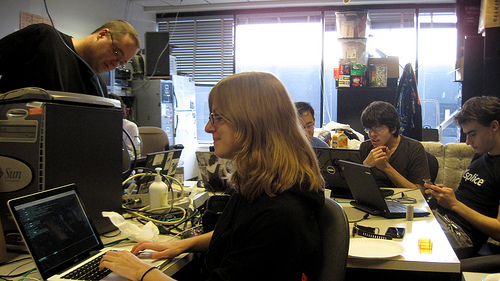
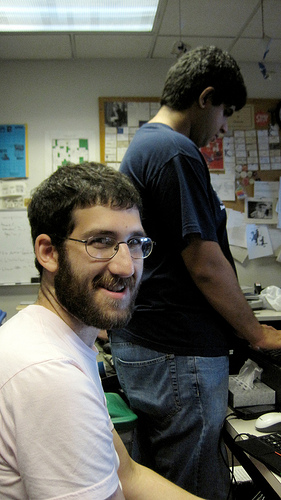
 I mentioned this briefly yesterday, but now I'll try to summarize the
story of a great surprise and a big moment for me.
I mentioned this briefly yesterday, but now I'll try to summarize the
story of a great surprise and a big moment for me.